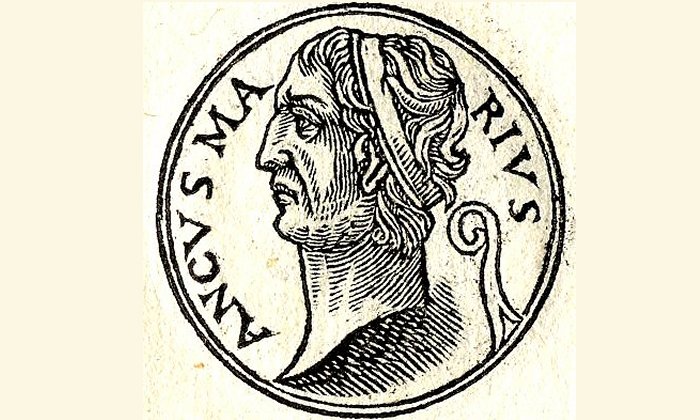Ancus Marcius: Semi-Legendary Fourth King Of Rome Obliged To Make War To Defend And Expend Territories
David Tee - AncientPages.com - Ancus Marcius, (677 to 617 BC), was the descendant of a man who was a good friend to Rome’s second and beloved King Numa Pompilius. It is said that his mother was a direct descendant and that Ancus was actually the grandson of Numa Pompilius.
Ancus Martius was the fourth of the Kings of Rome. Image credit: Guillaume Rouille (1518?-1589) - Public Domain
It was this connection that helped get Ancus Marcius elected as the fourth Roman king after the demise of Tullus Hostilius. Learning from the mistakes of his immediate predecessor, Ancus restored the religious practices of his grandfather and followed them intently.
Ancus Marcius - A Weak King
It was his first act as the new regent of Rome that established Marcius’ reputation. He had the Pontifex Maximus copy the religious texts of his grandfather, Numa Pompilius, and display those texts publicly so that no one would forget them or follow their instructions incorrectly.
Yet, it was his religious reputation that did not bring peace to his kingdom. Ancus Marcius was seen as a weak king because of his religious practices. This led his enemies to continually attack Roman land.
Ancus did not back down and did not take the theft of his land lightly. What he did do was follow the religious instructions on how to start a war. He is the first Roman king to go to war or even declare war according to the rites of the priests of ancient Rome, fetials.
After the defeat of the Latins in his first campaign, he brought the vanquished people into Rome as per Roman customs and made them citizens of the cities.
Ancus Marcius And His Accomplishments In Rome
Being victorious in war was not Ancus’ only accomplishment. When he brought the Janiculum into the city, he fortified the area with a wall. Plus, he built the first bridge, the Pons Sublicius, over the Tiber River to make sure that are was connected to the main part of Rome.
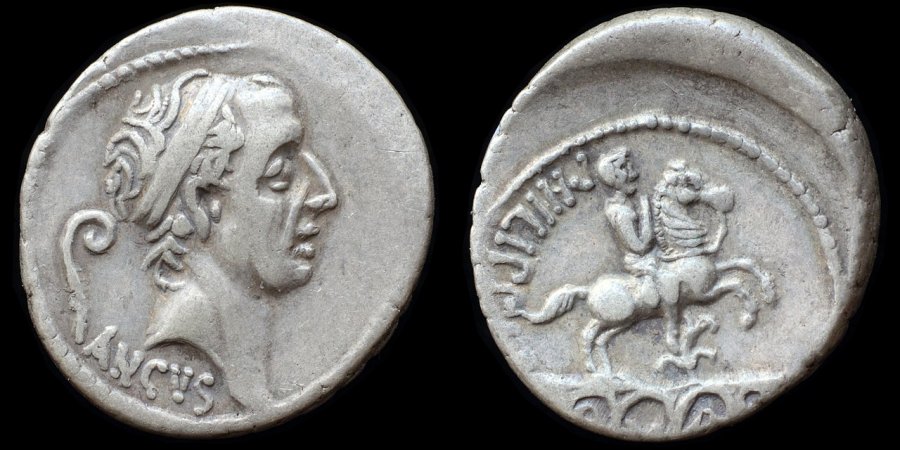 Silver denarius struck by Lucius Marcius Philippus in Rome 56 BC. source
Silver denarius struck by Lucius Marcius Philippus in Rome 56 BC. source
Marcius also took time to build the Fossa Quiritium, this was a ditch fortification to help protect the city from any eventual attack. Unfortunately, Rome was growing larger under his rule. This meant that Marcius had to deal with the rising crime rate.
This issue led him to build the first Roman prison called the Mamertine prison. Rome did not remain a small territory under Marcius’ reign. The king was able to expand its territorial holding by conquering the region surrounding Ostia.
There is some debate as to whether he actually founded the port or not, but his taking of the territory has been confirmed. His territorial land grab continued as he eventually captured the Silva Maesia a forest north of the Tiber River. He took the land from the Veientes.
Finally, he took the time to expand the temple of Jupiter Feretrius. This expansion work was done in honor of his territorial gains. In comparison, Ancus Marcius’ rule was broader and better than his predecessor Tullus Hostilius’s rule. Although the former had to battle a rising crime rate, the latter did not have to contend with it.
Ancus Marcius’ Legacy
By the time Marcius died in 616 BC he had a lot of accomplishments to his name. Although he did not start the wars he fought, he somehow came out the victor each time. His religious beliefs gave him the appearance of weakness and his enemies tried to take advantage of that perceived vulnerability.
Marcius’ time as king was not spent in warfare like his immediate predecessor, Tullis Hostilius. While he waged war, he still had ample time to improve the city, its defenses and enlarged its citizenry.
His biggest blot on his record is the fact that he seemed powerless to stop the growing crime rate. History does not record which of the many different people that occupied the city were to blame for the crimes committed.
All history says on the subject is that Marcius had to build the first prison to deal with the issue. In spite of this, he ushered in a golden age of religion that was to last through his next two successors at least.
Marcius died in 616 BC at the age of 60. His death came from natural causes which cannot be said of his successor Lucius Tarquinius Priscus. The latter was assassinated by the sons of the former.
Written by – David Tee AncientPages.com Staff Writer
Copyright © AncientPages.com All rights reserved. This material may not be published, broadcast, rewritten or redistributed in whole or part without the express written permission of AncientPages.com
Expand for referencesReferences:
Hooke N. The Roman history, from the building of Rome to the ruin of the commonwealth
Un album royal : Égérie et Numa
Beard M. A History of Ancient Rome
More From Ancient Pages
-
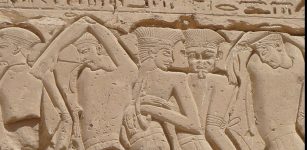 Mysterious Sea People: Many Theories But Their Origin Is still Unknown
Civilizations | Feb 24, 2015
Mysterious Sea People: Many Theories But Their Origin Is still Unknown
Civilizations | Feb 24, 2015 -
 On This Day In History: American General Benedict Arnold Commits Treason – On Sep 21, 1780
News | Sep 21, 2016
On This Day In History: American General Benedict Arnold Commits Treason – On Sep 21, 1780
News | Sep 21, 2016 -
 On This Day In History: Famous British Archaeologist And Egyptologist Sir Flinders Petrie Born – On June 3, 1853
News | Jun 3, 2016
On This Day In History: Famous British Archaeologist And Egyptologist Sir Flinders Petrie Born – On June 3, 1853
News | Jun 3, 2016 -
 Zuni Indians Bravely Fought For Their Ancient Culture, Traditions And Respect For Their Ancestors
Featured Stories | Mar 14, 2018
Zuni Indians Bravely Fought For Their Ancient Culture, Traditions And Respect For Their Ancestors
Featured Stories | Mar 14, 2018 -
 Oldest DNA From Domesticated American Horse Solves An Legendary Shipwreck Mystery
Archaeology | Jul 27, 2022
Oldest DNA From Domesticated American Horse Solves An Legendary Shipwreck Mystery
Archaeology | Jul 27, 2022 -
 Ancient Mystery Of The American Southwest – Unusual Skeletons And Mummies – Part 2
Civilizations | Jul 24, 2018
Ancient Mystery Of The American Southwest – Unusual Skeletons And Mummies – Part 2
Civilizations | Jul 24, 2018 -
 Ancient Marble Statue Of Sphinx Discovered In Tang Dynasty Tomb
Archaeology | Dec 16, 2015
Ancient Marble Statue Of Sphinx Discovered In Tang Dynasty Tomb
Archaeology | Dec 16, 2015 -
 Scientists Caution Against Over-Interpreting Influence Of Climate On Cultural Change And Catastrophe
Archaeology | Aug 18, 2022
Scientists Caution Against Over-Interpreting Influence Of Climate On Cultural Change And Catastrophe
Archaeology | Aug 18, 2022 -
 Legend Of The Sun And Moon In Cherokee Beliefs
Featured Stories | Jul 9, 2019
Legend Of The Sun And Moon In Cherokee Beliefs
Featured Stories | Jul 9, 2019 -
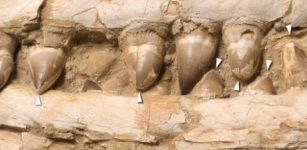 ‘Sea Monsters’ Were Real Millions Of Years Ago: New Fossils Tell About Their Rise And Fall
Featured Stories | Oct 8, 2022
‘Sea Monsters’ Were Real Millions Of Years Ago: New Fossils Tell About Their Rise And Fall
Featured Stories | Oct 8, 2022 -
 Ancient Burial Of A Princess Who Fell Off A Cliff Raises Many Questions
Archaeology | Apr 18, 2019
Ancient Burial Of A Princess Who Fell Off A Cliff Raises Many Questions
Archaeology | Apr 18, 2019 -
 A Baffling 100-Year-Old ‘Alien’ Puzzle – Shocking Cosmic Secrets
Featured Stories | Sep 20, 2018
A Baffling 100-Year-Old ‘Alien’ Puzzle – Shocking Cosmic Secrets
Featured Stories | Sep 20, 2018 -
 Neanderthals Were Present In Italy Much Earlier Than Previously Thought
Archaeology | Nov 6, 2015
Neanderthals Were Present In Italy Much Earlier Than Previously Thought
Archaeology | Nov 6, 2015 -
 Powerful Winds In Ancient Beliefs
Featured Stories | Feb 5, 2024
Powerful Winds In Ancient Beliefs
Featured Stories | Feb 5, 2024 -
 Lugh – Mighty God Of Light, Sun And Crafts In Celtic Beliefs
Celtic Mythology | Apr 30, 2018
Lugh – Mighty God Of Light, Sun And Crafts In Celtic Beliefs
Celtic Mythology | Apr 30, 2018 -
 Mysterious Ancient Female Society Discovered – What Happened To All The Men? Archaeologists Wonder
Featured Stories | Oct 3, 2024
Mysterious Ancient Female Society Discovered – What Happened To All The Men? Archaeologists Wonder
Featured Stories | Oct 3, 2024 -
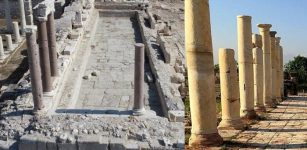 Massive 2nd-Century Fountain In Turkey’s Ancient City Of Tripolis Will Be Soon Restored
Archaeology | Aug 3, 2020
Massive 2nd-Century Fountain In Turkey’s Ancient City Of Tripolis Will Be Soon Restored
Archaeology | Aug 3, 2020 -
 1,800-Year-Old Buddhist Stupa And Relics Discovered Near Bazira, The Ancient City Of Alexander The Great
Archaeology | Feb 11, 2022
1,800-Year-Old Buddhist Stupa And Relics Discovered Near Bazira, The Ancient City Of Alexander The Great
Archaeology | Feb 11, 2022 -
 Why Did Sages And Shamans Repeatedly Visit The Mysterious Finnish Pirunkirkko Cave (Devil’s Church)?
Archaeology | Nov 27, 2023
Why Did Sages And Shamans Repeatedly Visit The Mysterious Finnish Pirunkirkko Cave (Devil’s Church)?
Archaeology | Nov 27, 2023 -
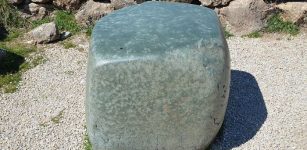 Mystery Of The Ancient Giant Wish Stone At Hattusa
Featured Stories | Oct 1, 2019
Mystery Of The Ancient Giant Wish Stone At Hattusa
Featured Stories | Oct 1, 2019

